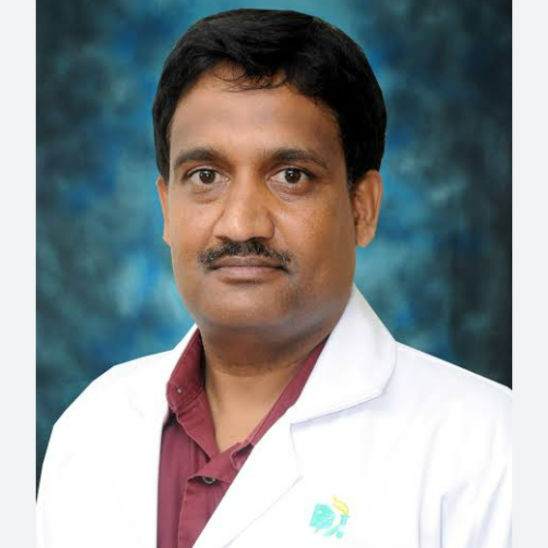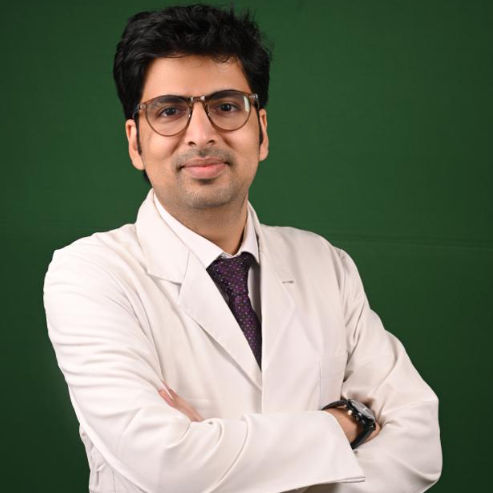Acne: Major Causes And Treatment For Acne
Discover the causes, types, and effective treatments for acne. Learn about prevention measures, skincare routines, and natural remedies to achieve healthier, clearer skin and manage acne confidently.

Written by
Last updated on 3rd Jul, 2025
Acne is a common skin condition wherein hair follicles become clogged with oil and dead skin cells, resulting in whiteheads, blackheads, pimples, and cysts or nodules in extreme cases. It is most common in teenagers but can occur in people of all ages. Proper management of acne is necessary to avoid long-term skin issues and emotional and psychological distress.
Most cases of acne can be improved with proper treatment. Keep reading to learn the causes of acne, treatments, prevention measures, and more.
What are the Causes of Acne?
Acne is caused by several factors like hormonal imbalance, diet, and even environmental triggers.
Hormonal Changes and Acne
Hormonal changes, particularly the ones experienced during puberty, pregnancy, and menstruation, contribute to acne. Androgens, a class of hormones, trigger the sebaceous glands to excrete more oil than normal, making teenagers more susceptible to clogged pores and breakouts.
There is no way to avoid such changes in hormonal levels, but these can be managed with proper treatment and care.
Diet and Its Impact on Acne
Research is still being conducted, but certain foods, including high-glycemic-index carbohydrates and dairy products, are believed to worsen acne. A healthy diet can lessen symptoms of this condition if implemented, along with minimizing sugar consumption.
Eating foods high in antioxidants, such as fruits and veggies, can also promote skin health and reduce inflammation, potentially lessening the severity of acne.
Environmental and Lifestyle Factors
Acne can also be the result of pollution, excessive sweating, and the use of certain makeup cosmetics, which can all clog pores. Hormonal imbalances due to stress and lack of sleep could also exacerbate the condition. The best preventive measures include proper hygiene, stress management, and avoiding pore-clogging products.
Understanding the Various Types of Acne
There are mainly two types of acne; inflammatory and non-inflammatory acne.
Non-inflammatory Acne: Blackheads and Whiteheads
Non-inflammatory acne is the type that includes blackheads and whiteheads. Blackheads, which are open comedones, take on a dark colour and are oxidised, whereas whiteheads remain flesh-coloured. Certain types of acne forms are usually less severe, but they can worsen without proper treatment.
Inflammatory Acne: Papules, Pustules, Nodules, and Cysts
Inflammatory acne produces red, swollen lesions. In this regard, papules are small bumps, and pustules are bumps that contain pus. Nodules and cysts are more serious, caused by a bacterial infection deep within the skin’s surface, and are usually painful. This type of acne can leave scars and often needs more aggressive treatments to be controlled and healed.
How to Diagnose Acne?
Here are some ways in which acne can be diagnosed:
People can usually identify acne from the physical changes to the skin, such as bumps, blackheads or cysts.
Tracking triggers and symptoms can help understand the condition. Monitoring diet, stress levels, and topical products can also help identify potential triggers.
Acne is also diagnosed by dermatologists using physical exams and patient history. They might also suggest some tests to determine whether there are underlying hormonal or medical reasons.
It is important to seek professional advice, especially if the condition is severe, so the diagnosis is correct and there is no undertreatment or overtreatment.
Topical Treatments for Acne
Over-the-counter (OTC) treatments are typically benzoyl peroxide, salicylic acid and alpha hydroxy acids. These products help clear skin by stripping away bacteria and unclogging pores. Use regularly to help manage mild to moderate acne.
Topical retinoids and topical antibiotics are more potent treatments for moderate to severe acne. These are often more effective but can have side effects such as irritation. Pairing prescription topicals with a well-rounded skincare routine can increase their efficacy.
Oral Medications for Acne
Following are some of the most commonly prescribed oral medications for acne:
Oral Antibiotics
They help decrease inflammation and bacterial proliferation and are generally administered in shorter courses to avoid antibiotic resistance. Additionally, these drugs are usually prescribed with topical treatment for optimal results.
Birth Control Pills
For women, hormonal approaches such as birth control pills can balance androgen levels, reducing oil production and acne breakouts. Such treatments focus on the hormones at the source and are especially effective for hormonal acne.
Isotretinoin
It is a strong oral retinoid used in cases of severe acne. It can dramatically clear up acne, but it needs to be prescribed with very close medical supervision. There are significant side effects, and this treatment is viewed as a last resort. But for many patients, the results are life-changing.
Procedural Treatments for Treating Acne
Dermatologists can use chemical peels, which contain acidic solutions that help exfoliate the skin, remove clogged-up pores, and reduce stains left by acne. Regular sessions may result in smoother skin and fewer breakouts.
Laser and light-based therapies target the acne-causing bacteria and help reduce inflammation. They have no downtime and could be beneficial for more resistant acne cases. Furthermore, they help diminish acne scars and texture.
Natural and Home Remedies for Acne
Listed below are some of the most popular natural and home remedies for acne:
Tea Tree Oil and Aloe Vera
Using natural acne treatments like tea tree oil and aloe vera are popular remedies, given their reputation for anti-inflammatory and soothing properties. However they might not work for more severe cases, and some people can be allergic to them. Thus, natural treatments should be used with caution, and a professional should be consulted when in doubt.
Honey Masks and Green Tea
Simple remedies such as honey masks or green tea applications can diminish mild acne. Staying hydrated and practicing hygiene can help with clearer skin as well. As always, it’s best to do a patch test before trying any new treatment to avoid adverse reactions.
Preventive Measures for Acne
Individuals suffering from acne can adopt preventive measures like:
Following a consistent skincare routine, which includes gentle cleansing, using non-comedogenic products, and applying sunblock regularly.
Avoiding harsh scrubs to reduce any further irritation to the skin.
Cutting down on sugar and highly processed foods.
Consuming foods rich in antioxidants and omega-3 fatty acids to help keep the skin in good health.
Maintaining adequate water intake and a diet high in unprocessed, whole foods for overall wellness and clear skin.
Conclusion
Acne can have a profound impact on self-esteem and mental health. Addressing such concerns through counselling or support groups is as critical as physical treatment. Open conversations about the condition can help reduce the stigma and promote understanding.
Educational materials, dermatologist consultations, and online forums can offer guidance and emotional support for those struggling with acne. It can be a tough journey, but seeking professional advice and connecting with others experiencing similar conditions can make it easier.
Consult Top Dermatologist
Consult Top Dermatologist
Dr. Kavitha Killaparthy
Dermatologist
23 Years • MBBS,DIPLOMA(DERMATOLOGY,VENEREOLOGY,LEPROSY)
Hyderabad
JDS Skin & Hair Clinic, Hyderabad
Dr. Mayuri Jain
Dermatologist
11 Years • MBBS, MD Dermatology , Venereology & Leprosy
Delhi
Dr Mayuri Jain Clinic, Delhi
Dr.j Girishma
Dermatologist
6 Years • MBBS MD DERMATOLOGY
Bengaluru
Apollo Medical Center, Marathahalli, Bengaluru

Dr. H R Yogeesh
Dermatologist
20 Years • MBBS, MD (Dermatology, Venereology & Leprosy)
Bengaluru
Akshata skin and hair care, Bengaluru

Dr Ekansh Shekhar
Dermatologist
10 Years • MBBS MD
Lucknow
Apollo Clinic Hazratganj, Lucknow
